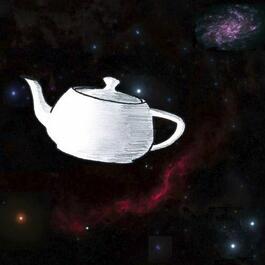
115 - Christopher Ferguson - The Influence of the Insane
Christopher’s website: https://www.christopherjferguson.com/ Follow Christopher on Twitter: https://twitter.com/CJFerguson1111 Christopher’s Amazon page, with links to his books, including ‘Moral Combat: Why the War on Violent Video Games Is Wrong’, ‘Suicide Kings’, and ‘How Madness Shaped History: An Eccentric Array of Maniacal Rulers, Raving Narcissists, and Psychotic Visionaries’: https://www.amazon.co.uk/Christopher-J-Ferguson/e/B0034NGO00/ref=dp_byline_cont_pop_book_2 Christopher’s Substack: https://grimoiremanor.substack.com/ Christopher’s Areo articles: https://areomagazine.com/author/cjferguson1111/ References Christopher’s article ‘My APA Resignation’ in Quillette: https://quillette.com/2021/12/31/my-apa-resignation/ More on the ‘Diagnostic and Statistical Manual of Mental Disorders’ https://en.wikipedia.org/wiki/Diagnostic_and_Statistical_Manual_of_Mental_Disorders The Goldwater rule: https://en.wikipedia.org/wiki/Goldwater_rule Timestamps 00.57 Introduction. 2:36 Christopher discusses the flaws of the American Psychological Association (APA) and his association with and resignation from it. 7:22 The new groupthink and monoculture among organisations and associations, including and specifically the APA, on ‘systemic/structural racism’: instead of focusing on their original missions, such theoretical and scientific organisations seem to be very focused on this newly fashionable issue (it is important to note that this is a separate issue from the truth or falsehood of systemic/structural racism itself). The problem of ‘institutional capture’. 12:39 The victory of politics and politicking (‘political correctness’) over scientific investigation. The flaws of the Implicit Association Test (IAT) and Diversity, Equity, and Inclusion (DEI) trainings: how the promulgation of these is based on business and profit rather than science. 16:52 Iona reads from Christopher’s Quillette piece on his resignation from the APA; discussion on the problem of political correctness over scientific integrity ensues, including how rapidly this has become an issue. How this will damage psychology and how it is perceived as a discipline. 21:58 The task of psychology, especially clinical psychology, with particular reference to Cognitive Behavioural Therapy (CBT), versus this new consensus. Iona reads from Christopher’s ‘How Madness Shaped History’. Christopher discusses the problems, from a psychological point of view, with ‘lived experience’ and ‘safetyism’. 30:37 The differences between dealing with issues, both contentious and banal, on a societal level versus an individual, psychological level, with reference to sexual assault and obesity. 38:55 A discussion of more problems in psychology, with particular reference to the ‘Diagnostic and Statistical Manual of Mental Disorders’. 49:12 How effective are pharmaceuticals in treating mental disorders such as depression, anxiety, and schizophrenia? 54:28 The bureaucracy of mental health care and the relation of problems like homelessness, criminal violence, and police shootings to mental health issues. Why we need to return to some kind of state-sponsored asylum-like system (but one which is humane and rational) 1:01:02 The connections between mental health problems and violence and why we are so hesitant to talk about these. How do we deal with such issues? 1:06:25 A discussion of science denialism and opportunism by ideologues on both left and right: people adopt scientific positions that support their views and ignore ones that contradict their views. 1:13:57 Political tribalism in the pandemic versus science (on all sides). 1:22:05 The Goldwater rule. 1:28:34 Last words.
From "Two for Tea Podcast"




Comments
Add comment Feedback